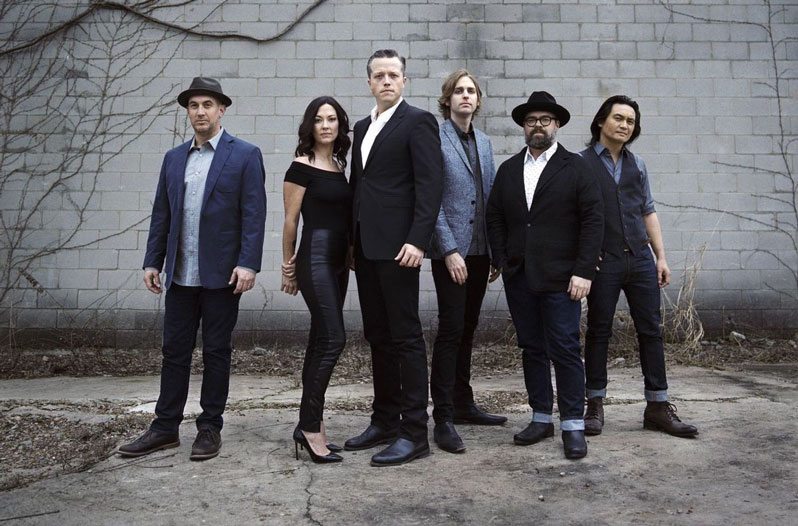[dropcap]L[/dropcap]ess than halfway through Jason Isbell and the 400 Unit's The Nashville Sound (out June 16 on Southeastern Records), you start to wonder if Isbell is even capable of making a bad record. The follow-up to Isbell's acclaimed solo efforts, Southeastern (2013) and Something More Than Free (2015), The Nashville Sound is one of the year's most highly-anticipated country/Americana records. Needless to say, it does not disappoint. Isbell's sixth studio album, produced by Nashville heavyweight Dave Cobb, is every bit as brutally honest as its predecessors, exploring rural America, family life and the trials of navigating an increasingly chaotic world.
Songs of the South
In his songs, Isbell inhabits characters that feel at once familiar and wholly unique. Album-opener "Last of My Kind" is a first-person narrative of a rural Arkansas boy facing the big city. "Nobody here can dance like me/ everybody clappin' on the one and the three," Isbell sings in his Alabama drawl. "Am I the last of my kind?"
Similarly, "Cumberland Gap" tells the story of another Southern man, but one who feels trapped in his Appalachian hometown. The character struggles with addiction, drinking away the days as a means to cope with the hopelessness he feels. The beauty of Isbell's music is his ability to make us see an age-old story with a new perspective. Even if you've never set foot in Appalachia, when the chorus kicks in, you may as well be sitting across from the coal country narrator. As
As mainstream country continues to embrace the party culture of never-ending keg parties, Americana has picked up the slack as a voice for the working class. You can tell Jason Isbell takes the job seriously.
"Tupelo" is another song of Southern sadness, weaving the tale of a man bent on leaving his woes behind, driving back home and sobering up after finishing a final swig of wine in a plastic cup.
While the first three songs make up a trilogy of tales of rural southerners, "White Man's World" is Isbell addressing his own privilege as a southern white man in a society in which women and minorities are marginalized.
"I'm a white man living in a white man's world/ under our roof is a baby girl," Isbell sings. "I thought the world could be her's someday/ but her mama knew better."
Songs of Hope and Anxiety
"Hope the High Road" is a call for empathy and staying positive in a combative political climate. The soaring Heartland rocker showcases Isbell's ace band, the 400 Unit, featuring guitarist Sadler Vaden, keyboardist Derry deBorja, bassist Jimbo Hart, drummer Chad Gamble and Isbell's wife Amanda Shires on fiddle and vocals.
Isbell tackles family life and inner turmoil on "Anxiety," one of the album's most rocking moments. The track explores the fear of losing what we hold most dear. "Even with my lover sleeping close to me, I'm wide awake and I'm in pain," Isbell sings.
Stand-out track "If We Were Vampires" explores the hardest part of being in love: the fear of losing your soul mate. Backed by his wife and muse Amanda Shires on vocals, the track is Isbell's most breathtaking love song since "Cover Me Up." It's already a classic.
The album closes with "Something to Love," a front porch shuffle and message to his young daughter. It calls to mind the Isbell-penned Drive-By Truckers opus "Outfit." There, Isbell reiterated his no-nonsense father's words of advice. Now it's Isbell bestowing advice that comes from five years of sobriety and decades of hard-won lessons.
At once both utterly heartbreaking and uplifting, The Nashville Sound is proof that Jason Isbell remains one of this generation's most gifted and prolific voices. It's a voice we desperately need right now.




